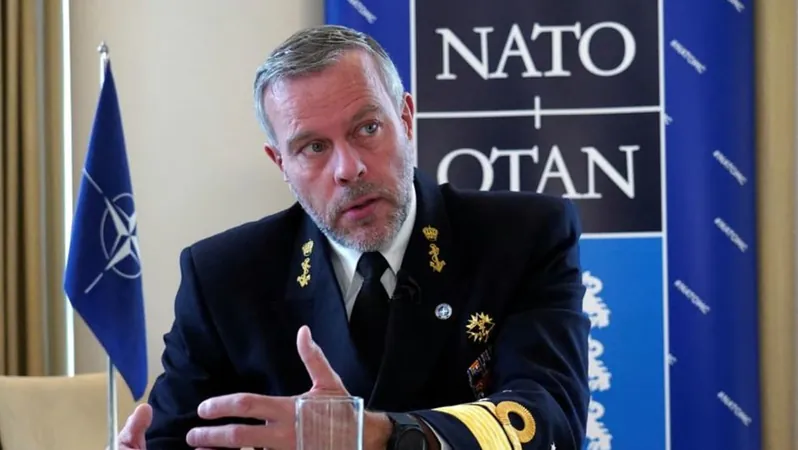
NATO's Urgent Call: Businesses Must Brace for Possible War Scenarios!
2024-11-25
Author: Yu
NATO's Urgent Call to Businesses
As geopolitical tensions rise, a senior NATO military leader is sending a strong message to businesses across the Atlantic: prepare for a "wartime scenario." In a bold address at an event hosted by the European Policy Centre in Brussels, Dutch Admiral Rob Bauer, the chair of NATO's military committee, called for companies to re-evaluate their production and supply strategies to mitigate vulnerabilities against potential adversaries like Russia and China.
"Ensuring that essential services and goods are delivered without interruption is crucial for our deterrence capabilities," Admiral Bauer stated, emphasizing that deterrence involves much more than just military might. “In today’s world, all instruments—including economic power—could potentially be weaponized in conflicts.”
Concerns Over Energy Sabotage
Bauer stressed the alarming trend of sabotage in Europe, particularly concerning energy supplies. He referred to the precarious agreements with energy giant Gazprom, stating, "We thought we had a deal with Gazprom, but in reality, it was a deal with Mr. Putin." This sobering acknowledgment extends to dependencies on Chinese supply chains, which dominate the market for rare earth materials—60% of the world’s supply is produced in China, while a staggering 90% of it is processed there.
Implications for Healthcare
The implications for healthcare are equally concerning. Bauer pointed out that vital chemical ingredients sourced from China are essential for sedatives, antibiotics, and other crucial medications. He warned businesses against underestimating the Chinese Communist Party’s potential to leverage these dependencies for political or economic gain.
A Call to Rethink Operational Strategies
“Companies in Europe and America need to recognize that their business decisions have far-reaching implications for national security,” he asserted. “To enhance resilience, businesses must rethink their operational strategies. While it's the military that may engage in direct confrontations, it's economies that ultimately determine the outcome of wars.”
As the landscape shifts and the specter of conflict looms, the call reaches beyond the military realm. It’s time for commercial leaders to act decisively, ensuring their organizations are equipped to navigate uncharted waters ahead. Will they heed this urgent warning and take the necessary steps to secure their nations against the ravages of potential warfare? The world watches closely as these critical decisions unfold!
 Brasil (PT)
Brasil (PT)
 Canada (EN)
Canada (EN)
 Chile (ES)
Chile (ES)
 España (ES)
España (ES)
 France (FR)
France (FR)
 Hong Kong (EN)
Hong Kong (EN)
 Italia (IT)
Italia (IT)
 日本 (JA)
日本 (JA)
 Magyarország (HU)
Magyarország (HU)
 Norge (NO)
Norge (NO)
 Polska (PL)
Polska (PL)
 Schweiz (DE)
Schweiz (DE)
 Singapore (EN)
Singapore (EN)
 Sverige (SV)
Sverige (SV)
 Suomi (FI)
Suomi (FI)
 Türkiye (TR)
Türkiye (TR)